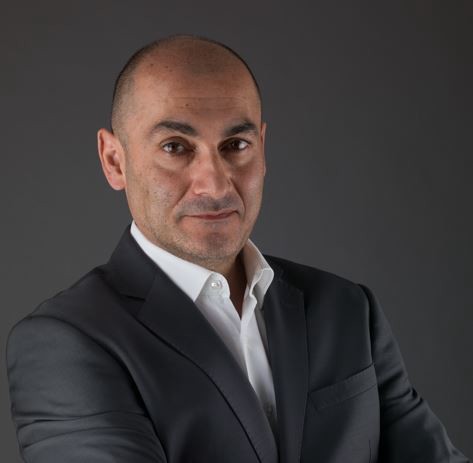Cyrus Hodes is co-founder and director of The AI Initiative. Created in 2015 within The Future Society at Harvard Kennedy School, the AI Initiative gathers students, researchers, alumni, faculty and experts from Harvard and beyond, as well as individuals and business executives interested in better understanding, discussing and working on the impact of artificial intelligence on business and society. He recently agreed to be interviewed by The Innovator.
Q: Why organize a civil debate on how to govern AI?
CH: We launched a seven-month global civic debate on the governance of artificial intelligence to deploy the power of collective intelligence in shaping the way AI impacts us all. Our goal is to discuss and better understand how the AI revolution is playing out, its consequences and how they need to be governed to maximize benefits, minimize risks and ensure these benefits reach everyone.
To that end, and based on the insights gained from the debate, we will present a report to various government bodies and policy platforms (in France, UK, Germany, EU, OECD, Japan, China, US, UAE, etc.) to help policy makers as they are shaping up frameworks to deal with the rise of AI.
We are convinced that the AI revolution is a global phenomenon that calls for global coordination. Hence the need for a global conversation that transcends boundaries. Our civic debate aims to open the discussion on AI development and ensure that the voices of civil society, academia, industry practitioners are heard among policy makers across the world. That is why we have organized a global debate that seeks to confront and align value systems between US, Europe, China Japan, Russia and others.
Q: There are already a number of initiatives focused on this issue. How do we ensure that these discussions are connected?
CH: This collective intelligence exercise is truly unique in the world. We are the first to use such a tool to better understand this fast growing emerging technology and its impact on societies. And by ‘tool’ I mean applying a curated collective intelligence platform and methodology, developed by our open-innovation partner Bluenove, to harness insights from global and diverse participants on the topic of AI governance. We publish and present regular synthesis of the insights gathered through our civic debate at leading AI conferences, recently at the UN in Geneva, the OECD in Paris and Toutiao in China, to continue bridging the international conversation and ensure global efforts on AI governance are harmonized.
Q: How will you measure the initiative’s success?
CH: We have a number of key performance indicators that we are closely tracking to measure a successful and insightful civic debate. These fall into two broad categories; insight gathering and knowledge enhancement. Insight gathering pertains to the number of global and diverse participants that we assemble to contribute to the debate discussion threads. Currently we are in the second phase of the debate. We have over 400 participants from a range of countries such as US, China and Japan. They have made almost 2,500 contributions, including votes and proposals.
In knowledge enhancement, our goal is to make citizens more aware of the consequences the AI revolution poses for them. A key element of our initiative is therefore to capture and present insights that are engaging and informative to citizens. The success of this undertaking is illustrated by visitors to our platform spending almost 800 hours reading and gathering ideas, with over 28,000 page views.
Q: What types of people have joined the debate so far?
CH: With the galaxy of partners that we have assembled in Europe, North America and Asia, we have accumulated a range of diverse participants. Our debate brings academics, experts, citizens, scholars, business people and policymakers from around the world into the conversation. We have also gathered a team of community managers, knowledge managers, insight harvesters and synthesizers to stimulate the community and ensure the debate is progressing. We believe it is essential that everyone is included in this conversation. It is not just the experts that can add value.
Q: Why should business leaders join the debate?
CH: The civic debate is a unique opportunity for business leaders to contribute their perspective on AI governance to a global conversation. Our initiative gives participants an open and collaborative opportunity to discuss what characterizes the rise of AI, its drivers, main actors, and its implications in terms of employment, security, warfare, healthcare, transportation and regulation, among others. Since this collective effort will culminate in the publication of reports submitted to a host of governments, parliaments, and international organizations we have been closely working with, the debate is an unprecedented effort to shape policy on AI at the global level and a chance for stakeholders to be heard.
Additionally, participants have the opportunity to learn from world leaders in AI policy, research and governance through the debate. Since our multilingual platform is organizing and coordinating thought leaders from a range of geographies, from US to China, the platform furthers an interactive exchange of ideas, discussion and collective intelligence.
The AI revolution holds massive transformational power. The civic debate is a collective effort that gives business leaders an accessible platform to understand what the AI revolutions means for them, as well as tangibly shape the way AI impacts society, nations, private sector and citizens.
Q: How can they get involved?
CH: Our platform is open to everyone and accessible through www.aicivicdebate.org. We have a number of industry, non-profits and government partners and are continually expanding collaboration with new partners.







